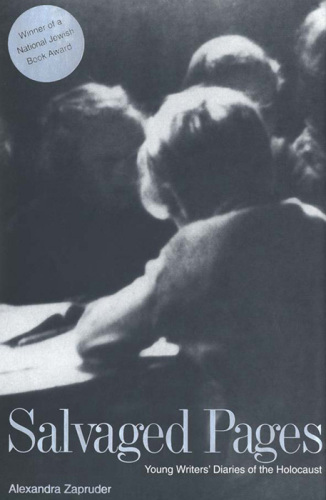
Salvaged Pages
Young Writers' Diaries of the Holocaust
- اطلاعات
- نقد و بررسی
- دیدگاه کاربران
نقد و بررسی

April 1, 2002
Zapruder, who works in the education department at the U.S. Holocaust Memorial Museum, has done a great service to history and the future. Her book deserves to become a standard in Holocaust studies classes, particularly those aimed at youth or focusing on individuals. The 14 diaries in this anthology—most appearing in English for the first time—detail the lives of teens and their families, some on the run, some in camps, some in hiding and some during the chilling last days in the ghettoes in Nazi-occupied Europe. Each is prefaced with a biography of its author, information on family background and, when known, his or her fate. Zapruder also provides other facts that would have been known to the diarists and their peers, providing readers with a more complete context. Their experiences and reactions vary widely. Peter Feigl's parents baptize him as a Catholic and send him to church, but eventually are forced to send him from Austria to France. He blames the Jewish-identified teens around him for the circumstances that have ripped him from his parents. In contrast, Belgian Moshe Flinker becomes more attached to traditional Judaism, but increasingly depressed. His last entry, in the fall of 1943, reads, "I am sitting facing the sun. Soon it will set; it is nearing the horizon. It is as red as blood, as if it were a bleeding wound. From where does it get so much blood? For days there has been a red sun, but this is not hard to understand. Is it not sufficient to weep, in these days of anguish?" These writings will certainly impress themselves on the memories of all readers.

April 1, 2002
For the millions who read" The Diary of Anne Frank" (1952), this collection of 14 Holocaust diaries by young people from all over Europe will extend the history beyond Anne's attic walls. Scholars will want this volume--editor Zapruder's research is meticulous, drawing on archives and museums across the world--but the intensely personal voices of these young people who record the unimaginable will also draw a general audience. In her clear overview and introductions to each diary, Zapruder gives historical context and biography and decries any message of consolation or redemption, pointing out that these stark narratives banish forever the stereotypes of sweet victim, beneficent rescuer, and unfeeling bystander; instead, they suggest the immense complexity of ordinary people. Some writers are dull; some write with heartbreaking power. One diarist focuses on hunger: he's absolutely obsessed with food. Another's anguish is the loneliness, the separation; she cannot forget having to leave her grandmother in the street. The places range from the Czech forests and the Lodz ghetto to Auschwitz and the horrific scenes at liberation. A landmark collection. (Reprinted with permission of Booklist, copyright 2002, American Library Association.)




دیدگاه کاربران